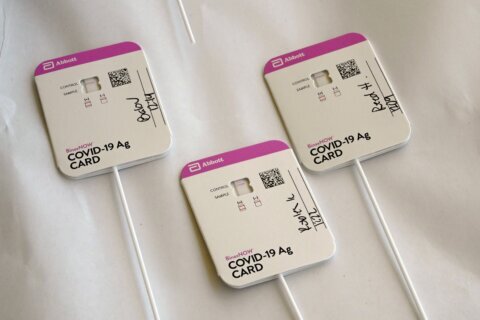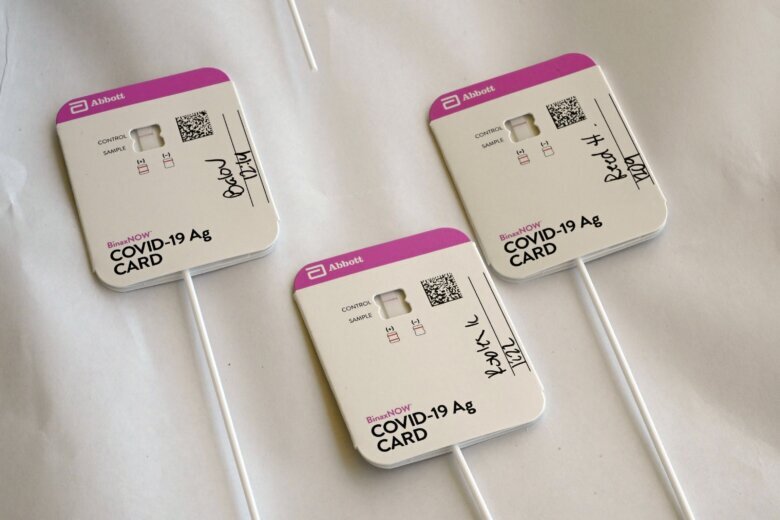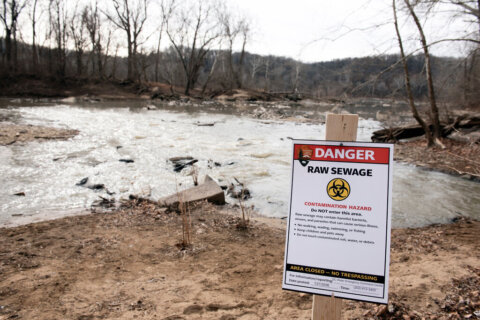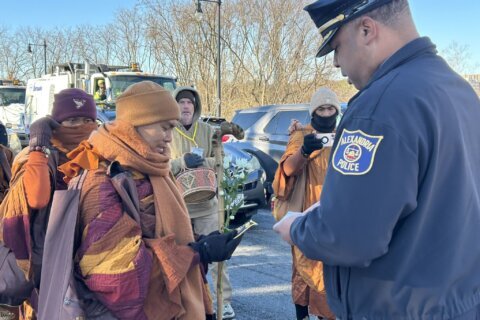
On Sunday, parents in Prince George’s County, Maryland, will administer rapid tests sent home with their kids on Thursday and upload the results in an online portal ahead of sending their kids back to class on Monday.
Parents in D.C. had to do something similar coming out of winter break, and school systems around the region have also worked to send kids home with rapid tests.
Knowing how those rapid tests work, one health expert says they can have a big impact in keeping kids from having to go virtual again.
“Rapid tests are an important tool to keeping schools in person,” said Dr. Amesh Adalja, a senior scholar at Johns Hopkins Center for Health Security. “I do think it’s a really good idea for schools to be using this test.”
Dr. Adalja said he has long argued it’s important to keep kids inside classrooms instead of relying on virtual learning whenever possible, and he’s been a staunch advocate for the Centers for Disease Control and Prevention’s “test to stay” program.
“If there’s an exposure in the classroom, they don’t have to quarantine the whole classroom,” he noted. “They can test all of these asymptomatic individuals there and see, are they contagious, are they positive.”
“So I do think that these rapid tests have a major role in screening asymptomatic individuals to see if they’re contagious to others,” he added.
He also argues that schools should begin planning for a future where kids don’t have to wear masks in the classroom either, and says it might be time to allow for more flexibility in other places too.
“There’s clear scientific evidence that masks do block transmission,” he said. “They decrease your ability to pass on the infection and get the infection.”
But he says wearing masks in public places should be dependent on how much risk tolerance someone has.
“If you’re fully vaccinated, the risk of severe disease is basically zero,” he pointed out. “If you’re trying to avoid a mild illness, that’s fine, you can continue to wear a mask for that. But not everybody has that same risk tolerance. There may be people who are more tolerant and are okay with getting a mild COVID-19 infection.”
- Sign up for WTOP alerts
- Latest coronavirus test results in DC, Maryland and Virginia
- Latest vaccination numbers in DC, Maryland and Virginia
Looking for more information? D.C., Maryland and Virginia are each releasing more data every day. Visit their official sites here: Virginia | Maryland | D.C.









